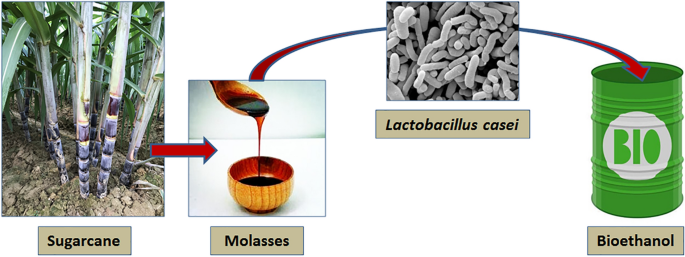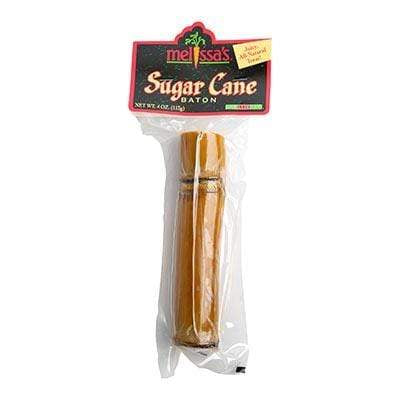The Growing Popularity of Sugarcane Product in the Vegan and Sustainable Markets
The Growing Popularity of Sugarcane Product in the Vegan and Sustainable Markets
Blog Article
Sustainable Sugarcane Products: From Sweeteners to Eco-Friendly Goods
The potential of lasting sugarcane items expands past standard sweeteners to encompass a variety of green products, presenting a compelling instance for their assimilation into contemporary consumer practices - sugarcane product. As the globe faces pressing environmental concerns, sugarcane becomes a flexible resource capable of dealing with both dietary demands and sustainability goals. This discussion will certainly check out how innovations in sugarcane farming and handling can result in substantial improvements in naturally degradable packaging and eco-conscious fabrics. What implications might these growths have for future customer choices and ecological impact?
Summary of Sugarcane Sustainability
As the need for environmentally pleasant items grows, comprehending sugarcane sustainability comes to be progressively vital. Sugarcane, a versatile crop, is grown primarily in subtropical and exotic areas, and its sustainability is vital for both environmental health and wellness and financial viability. Sustainable sugarcane farming methods concentrate on reducing environmental influence while taking full advantage of productivity and success.
Trick facets of sugarcane sustainability include effective land use, decreased chemical input, and enhanced water management. Practices such as plant turning, incorporated pest management, and organic fertilizing add to dirt wellness and biodiversity. Additionally, ingenious modern technologies, such as accuracy farming, aid maximize source usage and reduce waste.
Furthermore, sugarcane is a sustainable resource, with spin-offs that can be used in different markets, from biofuels to eco-friendly plastics, therefore lowering dependence on nonrenewable fuel sources and lessening carbon impacts. Qualifications like the Bonsucro standard encourage lasting techniques throughout the supply chain, advertising transparency and responsibility.

Sugarcane-Based Sugar
Using sugarcane as a primary resource, sugarcane-based sugar have actually obtained importance as natural alternatives to polished sugars and sweetening agents (sugarcane product). These sugar, stemmed from the extraction and handling of sugarcane juice, use a range of items that accommodate diverse customer preferences, consisting of organic and minimally refined choices
Among the most remarkable sugarcane-based sweeteners are raw cane sugar, panela, and molasses. Raw cane sugar maintains even more of the natural tastes and nutrients discovered in sugarcane, making it a popular selection for health-conscious consumers. Panela, a typical Latin American sweetener, is produced by evaporating sugarcane juice, preserving its natural minerals and vitamins. Molasses, a result of sugar extraction, is abundant in antioxidants and essential nutrients, offering as a nutritious sweetening agent in numerous culinary applications.
The growing need for sugarcane-based sugar is driven by enhancing recognition of health and sustainability problems related to conventional sugar. By picking sugarcane-derived products, consumers not just sustain lasting agricultural methods yet also contribute to a healthier way of living, straightening their dietary choices with their environmental worths.
Eco-friendly Packaging Solutions
Emerging as a sensible choice to conventional plastics, biodegradable packaging options obtained from sugarcane are changing the product packaging sector. These cutting-edge materials offer an eco-friendly alternative that addresses the growing concerns over plastic pollution. Utilizing the natural sugars found in sugarcane, producers are developing various forms of biodegradable packaging, including films, containers, and covers that decay more swiftly than typical plastics.
The key advantages of sugarcane-based product packaging depend on its sustainable sourcing and its ability to break down right into safe by-products. Unlike fossil fuel-derived plastics, which can continue in the atmosphere for hundreds of years, sugarcane packaging typically decomposes within a couple of months under correct conditions. This reduction in waste not just minimizes land fill overflow however also decreases the carbon impact connected with packaging products.
In addition, sugarcane-derived packaging maintains durable efficiency characteristics, providing comparable resilience and performance to conventional options. As consumers and organizations progressively prioritize sustainability, the fostering of biodegradable product packaging options represents a substantial step in the direction of a circular economy, where materials are reused and restored as opposed to discarded. This change not just improves brand name picture but Recommended Site additionally contributes to an extra sustainable future for the earth.
Eco-Friendly Textiles and Fabrics
Environment-friendly textiles and materials are gaining grip in the fashion and home products industries as consumers significantly demand lasting alternatives to standard products. Among the remarkable options are textiles derived from sugarcane, which use an eco accountable choice to artificial fibers. These fabrics are produced with a procedure that utilizes the renewable energies found in sugarcane, substantially lowering reliance on petroleum-based materials.

As the market for sustainable textiles increases, customers can look ahead to ingenious designs that combine design with eco-friendly obligation. Eventually, environmentally friendly textiles and textiles stand for a considerable step towards minimizing the fashion industry's ecological impact while catering to the expanding need for accountable customer selections.
Advancements in Sustainable Farming
Revolutionizing farming methods, developments in sustainable farming are changing the way plants are expanded and taken care of. These advancements concentrate on reducing environmental effect while maximizing performance and efficiency. Strategies such as precision farming use information analytics and satellite imagery to maximize resource usage, guaranteeing that water, plant foods, and pesticides are used only where needed. This targeted approach not only lowers waste however additionally improves plant yields.

Additionally, agroecology, which incorporates ecological principles into farming, advertises biodiversity and dirt wellness. Practices such as crop rotation, cover cropping, and intercropping foster durable communities that can stand up to insects and climate variations - sugarcane product. Furthermore, using natural plant foods and biopesticides adds to much healthier soils and communities

Together, these developments are not only reshaping the farming landscape yet likewise contributing to a more lasting future for sugarcane and various other plants, aligning agricultural techniques with ecological stewardship.
Final Thought
Sustainable sugarcane products stand for a considerable advancement in green choices, covering from natural sugar to naturally degradable goods. The farming of sugarcane with sustainable techniques not just enhances ecological health and wellness but additionally adds to economic stability. As customer preferences significantly lean towards lasting choices, the versatility of sugarcane as a renewable energy comes to be progressively relevant. This trajectory highlights the significance of ongoing development and dedication to sustainable techniques within the sugarcane market, cultivating a much more lasting future.
The capacity of sustainable sugarcane products expands past standard sugar to incorporate a variety of eco-friendly products, offering an engaging case for their combination right into modern-day consumer practices. Lasting sugarcane farming techniques concentrate on minimizing environmental effect while optimizing performance and success.
Sustainable sugarcane products stand for a substantial innovation in eco-friendly alternatives, covering from natural sweeteners to naturally degradable products. The growing of sugarcane via lasting techniques not just boosts get redirected here ecological wellness yet additionally adds to financial stability. As customer choices significantly lean in the direction of lasting alternatives, the convenience of sugarcane as an eco-friendly source comes to be progressively appropriate.
Report this page